

|
Soundclips - SK Full Version:
| Steve Khan's Acoustic Guitar Solo:
|
| See Don Grolnick's Lead Sheet from Chuck Sher's Latin Real Book |
|
Steve Khan's acoustic guitar not on: "Rainsville"(Don Grolnick) As we, globally speaking, begin to slow-ly emerge from the COVID-19 crisis with all of our lives, in one form or another, having been turned upside down, creative inspiration, at least in my case, seems to come at times from within. There can also be small flashes of light that can suddenly appear out of nowhere. In the case of the latter, this becomes just such a story, which focuses on two beloved friends and colleagues for whom I hold the utmost respect. I'm speaking of Don Grolnick and Michael Brecker. Two friendships that were born, personally and musically, as the '70s dawned, and in Don's case, lasted until his untimely passing in 1996. With Mike, it lasted until his very sad passing in 2007. There really isn't a day that goes by when I don't think of both of them, and their music. How fortunate are we that their music still remains and we can always go to it when needed. 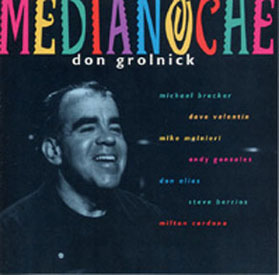 What this little project became was an homage to Don and Mike which seemed to bring together my immense feelings of love and admiration for them. I am hoping that those who read this and listen to what I tried to create will feel something too. What this little project became was an homage to Don and Mike which seemed to bring together my immense feelings of love and admiration for them. I am hoping that those who read this and listen to what I tried to create will feel something too.It all began on May 27th, 2021 when quite innocently, I recently an e-mail via this very website from guitarist/educator Bill Fowler [not one of the famous Fowler Brothers: Bruce, Walt, Tom and Steve & Ed]. Bill and I have been 'connected' in a way, without ever having met, since the mid-'90s, but that's a story for another time. I responded to Bill's gracious message that very day, and it was just some 3 days later on May 30th that Bill wrote to share with me an arrangement that he had created for "Guitar Quintet" of, you might have guessed it, Don Grolnick's classic composition "Rainsville" from his monumental Latin Jazz album, "MEDIANOCHE"(Warner Bros.)(1995). That e-mail from Bill came with his score and an mp3 of the demo that he had done. I listened very attentively and felt that, from a rhythmic perspective the demo was missing some key elements. Don's own initial reading of "Rainsville" featuring Michael Brecker (Tenor Sax) and Mike Mainieri (Vibes) brought him together with Latin music masters: Andy González (Baby Bass); Milton Cardona (Conga) Steve Berrios (Perc.) Don Alias (Timbal) and Dave Valentín (Flute). With this kind of support all of the wonderful elements of Latin music were in place to perform this deliciously unique Cha-cha-cha. However, Bill's demo incorporated none of those elements and that made it feel strange to me. So, crazy me, seeing that the tempo marking was Q=128, I created a Pro Tools session for it, and slipped Bill's demo into it - and lo and behold, the demo held to the grid. Then, just for fun, I added conga, güiro, and timbal - and suddenly, at least to me, it sounded and felt much better. Then, upon repeated listening, a couple of the chords, the sonorities, sounded strange to me, and so I unearthed my copy of Chuck Sher's wonderful book, "The LATIN REAL BOOK" 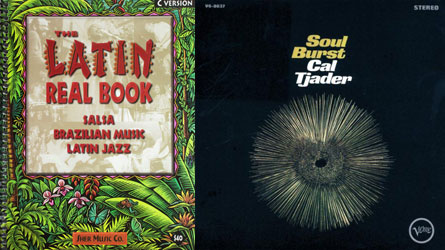 and began to compare what I was hearing with what Don had written. I knew that Don had submitted his manuscript to Chuck, because Don wanted the tune to be represented in the best possible way - supplying all of the subtleties. I wrote back to Bill and pointed out a couple of these details to him - and he received my comments graciously, even though I wasn't at all certain that he was going to re-perform his own demo. and began to compare what I was hearing with what Don had written. I knew that Don had submitted his manuscript to Chuck, because Don wanted the tune to be represented in the best possible way - supplying all of the subtleties. I wrote back to Bill and pointed out a couple of these details to him - and he received my comments graciously, even though I wasn't at all certain that he was going to re-perform his own demo.In the days that followed, I began to transform the Pro Tools session that I had created around Bill's demo to include a Rhodes part, playing what Don had written. As I am hardly a great keyboard player, it took a bit of time and editing, but not long thereafter, I had it done and it sounded good to me. So next I added in a bass part which was also written on Don's score, and things were sounding better and better. All the while, I was adding more percussive touches to try and make this piece feel a bit more "real"! Finally, all of the elements seemed to be in place - but, as is usual for me, the big cosmic question arises, "Steve, what are you going to do with this?" In that moment, I had no answer. Even if I 'did something' with it - it would surely have no place to be in the Jazz or Latin Jazz marketplace - so what would be the point? Well, "the point" became easy to locate - this was just to be an musical act of love directed at the memory of both Don Grolnick and Michael Brecker. It also pains me to note that, at this moment, the only surviving participants from the "MEDIANOCHE" album are Mike Mainieri (Vibes) and James Farber (Engineer) - it's so sad just to even ponder this. My own tangential relationship to this great album is one that I have written about at these pages before - but a large part of the inspiration to record this kind of album came from Cal Tjader's classic, "SOUL BURST"(Verve)(1966) album. And who do think gave Don one of his extra LP copies years ago? Yes! You've got it! ME! Don acknowledged the influence of that album by arranging Chick Corea's great tune, "Oran." I must note at this point that, Bill Fowler's demo of his arrangement for 5 guitars was only 2:51 in length. He had eliminated the bass & piano Intro from Don's recording, and also chose to skip [A] which is where the piano and vibes unveil the rich harmonies and the rhythmic feel of the piece. When letter [B] arrives, the flute and tenor sax then play the melody. Bill's arrangement really begins there. Then there is a simple and to-the-point solo section of 2 choruses of blues, after the solo, the melody is repeated in full to the held chord fermata ending. As this format made musical sense to me, I decided to stick with it - at least for a time. As all of this caused me to revisit Don's recording of "Rainsville," I began to hear little touches, details that suddenly stood out to me as if I had never really heard the piece before. One my favorite new discoveries was that I heard something happen that was different when the band hit letter [B], at first, I found myself asking, "Wait a minute, something is different here, but what is it?" When I finally figured it out, I was stunned. With the help of my professor, where Latin music is concerned, saxophonist/composer/arranger, Rafael Greco from Caracas, Venezuela, I can now relate to you all that Milton Cardona only plays one drum, his quinto throughout letter [A]. When [B] arrives, it is then that he adds in the lower drum, the tumbadora to his tumbao and, to these ears, it really is magical. It again reminds us that each musician present at recording or live gig brings his or her own special perspective and experience to the mix - and, what could seem like a little touch like this, really becomes a thing of great beauty and depth. So, the next time you listen to the original, pay attention to that moment! Don's melody for "Rainsville" is so very subtle, mysterious and understated, I wondered to myself if I could carry that weighty responsibility on my Martin MC-28 acoustic steel-string? But, why not give it try to see what it might sound like? And so, I did. At that point time, we had arrived at June 1st. By the time that I had played through all of the melodic necessities, I began to listen to see just what I had created just with these simple elements. And, while listening, feelings came over me, and I was thinking a lot about Don and his sense of order and structure - everything in its proper place - and I believe that I had played a very respectful interpretation of the song while maintaining my own personal touches on my instrument. Of course, Michael Brecker's tenor sax voice on this piece is so unmistakable and unforgettable that it was in my mind too. I transcribed his solo and shared it here @ KHAN'S KORNER 1: "Rainsville." So armed with that sensibility and feeling, playing a very minimalist type of 2-chorus solo was relatively easy. 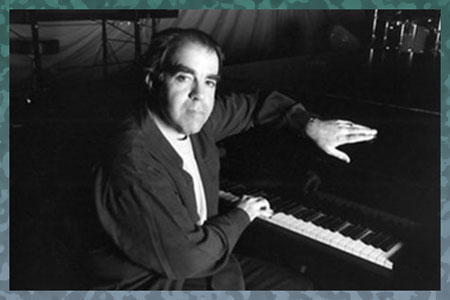 I then had to add in some Grolnick-esque comping behind the solo - that was much more difficult - but again, with a minimalist approach, I was able to come-up with something that made musical sense to me. When that labor was completed, I was left to ask the same question again, "Well Steve, what are you going to do with THIS, now?" I summoned all of my courage and sent an mp3 of a rough mix to James Farber. I was so nervous as to what he might say about what I had done. But, he phoned not too long thereafter, and said that he loved it - and felt that Don would have loved it too. So, that meant pretty much everything to me. I then had to add in some Grolnick-esque comping behind the solo - that was much more difficult - but again, with a minimalist approach, I was able to come-up with something that made musical sense to me. When that labor was completed, I was left to ask the same question again, "Well Steve, what are you going to do with THIS, now?" I summoned all of my courage and sent an mp3 of a rough mix to James Farber. I was so nervous as to what he might say about what I had done. But, he phoned not too long thereafter, and said that he loved it - and felt that Don would have loved it too. So, that meant pretty much everything to me.As James and I have been friends and colleagues for years and James has engineered my last 4 albums, he knows that he can pretty much express anything that's on his mind to me and it will received with an open mind. And so, in that spirit, he said something like this to me: "Steve, I wondered why you didn't play a part of Mike's solo as part of your own solo - it's so classic that it is as if it has become a part of the composition." I told him that I had never thought about that, I mean how could I dare attempt to play something so iconic - but also, because the tenor sax is like the human voice - it's so emotional in a particular way, no guitar is really like that - at least I don't believe so. Anyway, as that day moved along, I thought more and more about what James had said, and listened to Mike's solo again for about the 1,000th time over all of these years, and when the following day dawned, I decided to give it a try. With what I already had, I felt that I could add in two more choruses in front of what I played and if I did correctly, it should work musically. Once I had done that preparatory editing in Pro Tools, I was ready to give it a shot. Perhaps because, like so many, I love what Mike played so much, putting that same feeling into it was easy for me - but, would it sound good after getting away from it for a couple of hours? When I came back to it, I liked the feeling of what was now there. Of course, I sent it to James - and he was really pleased with what I had been able to accomplish - considering the inherent difficulties involved. And so, with this now accomplished, at least to a degree - and remembering that I am NOT making another album - the question remains, "What are you going to do with this work?" When I began all of this, the whole point seemed to be rejoicing in Don's wonderful composition - the detail contained within each sonority, and because we have the benefit of being able to look Don's lead sheet, we can see exactly what's going on. The depth of these harmonies within the framework of setting up a 12-bar solo form using a Bb blues makes it the more special because, within the blues language is the soul of what reaches us and touches us. Having known this piece for so long, it always seemed to me to be a sure thing that playing on Rhodes, or a Rhodes-like sound, would be instantly perfect for these harmonies. As Don had orchestrated his own arrangement, having Mike Mainieri's vibes doubling a part of these voicings almost gives a Rhodes-like sound to the original. Don's melody is so understated as performed by Dave Valentín's flute and Mike Brecker's tenor sax that you almost wouldn't know that you're hearing a melody, and that's one of Don's great attributes as a writer. As the melodic content goes up an octave and is repeated as a refrain, Gb to F to Eb and gliding down to C with each chord being treated differently from the 2nd Ending through letter [C]. When I listen to this passage, I feel something each time - each harmonic color evokes a feeling, a different feeling and they are beautifully crafted by Don's pen. Because a Rhodes sound creates a different overtone series than an acoustic piano, I was able to add a couple of color tones here there, but only where I felt that they would not change or alter Don's intent. I see all of this as a very romantic piece of music, and I approached playing this melody in exactly that way. 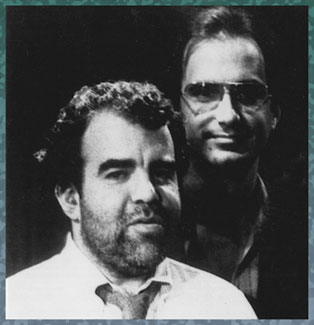 I'm guessing that dear Don might have taken issue with some of the phrasing liberties that I took - but, he's not here to give me that raised eyebrow look of scorn and disgust - so, my creative soul is free to fly. I'm guessing that dear Don might have taken issue with some of the phrasing liberties that I took - but, he's not here to give me that raised eyebrow look of scorn and disgust - so, my creative soul is free to fly.When I realized that I felt compelled to make this presentation about Don's composition and his writing style in general, I never intended to transcribe what I had played nor share it with the usual analysis of the details. But, with the inclusion of now having performed two choruses of Mike Brecker's 4-chorus solo, I need to say something about it all. I just went back and revisited the "Rainsville" and I was a bit shocked to see just how terse it all was. So, I am going to share here what I wrote about those two choruses that Mike played. The analysis went something like this: Though the composition itself is far more complex in form and harmony, the solos are taken over a most simple Bb 12-bar blues form. When Mike begins his solo, one has the feeling that he has taken a deep breath, reminded himself to relax and to just 'let the music play HIM!' The first two choruses feel so relaxed and composed, marked by phrases which organically grow from one another. When taken in total, this brief improvisation is a model of saying MORE with LESS - and seemingly with less effort and energy too. Mike begins Chorus [1] with a very simple motif and allows it to take him into its development. In Chorus [2], another small motif is begun and developed, but this time it's a bit more of a rhythmic idea featuring varied groupings of 8th-note triplets. One device which makes Mike's playing here so effective is his usage of purposefully playing behind the beat with some extremely 'laid-back' passages. For example, listen to his phrasing in Chorus [1], bars 8-10; and then in Chorus [2], bars 8-11, all played with beautiful feeling. If you find that intriguing, I also offered solo transcriptions of 4 other Mike Brecker solos that appeared on Don Grolnick's "MEDIANOCHE" and you can connect to them and enjoy them at these pages: "Oran"; "If Ever I Should Leave You"; "Cape Verdean Blues" and "Rojo y Negro." They are all jewels, so don't miss this opportunity. After thinking about this for awhile now, I believe that lush sounds created by Don's harmonies during the melody create an atmosphere that takes over your being and your own sense of hearing lines that end-up reflecting those very same harmonies. Even though the indications are that solos are over a Bb blues, which can sound so simple, you tend to hear things that involve the extensions (notes above the b7 of a dominant 7th chord), or, as some musicians used to refer to them, the pretty notes, and I believe that that is what you heard during Mike Brecker's solo. During those first two choruses you really didn't hear a lot of blue-notes, or Jazz chromaticism - just look at how much emphasis he places on the natural-9th, C-natural! That's one of those "pretty notes." As you now know, I had actually recorded the initial 2 choruses of my solo before James Farber's comments and then adding in, to the front, the performing of Mike's first 2 choruses. 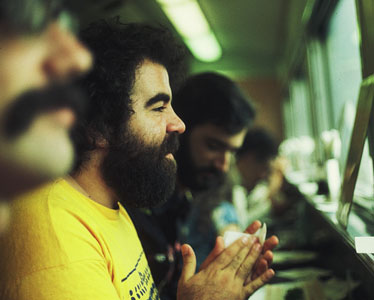 And now, if you look at the last note played of Mike's solo, a C-natural, and then, what is the 1st pick-up note I played into Chorus [3]? Yes, a C-natural. So, the cosmos must have really been at work guiding me to hear these kinds of lines which were again born of the harmonies in the melody. Of course, during these 2 choruses, elements of the blues abound. For example: in Chorus 1, the vibrato on the F-natural at the end of bar 1; that vibrato reappears on the same F-natural in bar 6, followed by a bluesy phrase in the 2nd-half of that bar, plus the bend, up a micro-tone from Db, the blue-note - and there is an answer to that phrase in bar 8. But you also have a blues/guitar based treatment of a higher C-natural in bar 11 with a bend up to that note. This is not really a common note to be bending up to, but it is in keeping the harmonic/linear spirit of this great tune. Two other points of interest would be in bar 4, where in most Jazz-related blues changes, the Bb7 truly becomes a dominant 7th chord to pull to a cadence on the IV7 chord, Eb7 in bar 5. Here, I have done that by having played notes from an E7 chord, the b5 substitute for Bb7. In bar 10, I played B7 chord tones, a 1/2-step above the destination, and again a b5 substitute, this time for F7, to pull back to our center of Bb7. And now, if you look at the last note played of Mike's solo, a C-natural, and then, what is the 1st pick-up note I played into Chorus [3]? Yes, a C-natural. So, the cosmos must have really been at work guiding me to hear these kinds of lines which were again born of the harmonies in the melody. Of course, during these 2 choruses, elements of the blues abound. For example: in Chorus 1, the vibrato on the F-natural at the end of bar 1; that vibrato reappears on the same F-natural in bar 6, followed by a bluesy phrase in the 2nd-half of that bar, plus the bend, up a micro-tone from Db, the blue-note - and there is an answer to that phrase in bar 8. But you also have a blues/guitar based treatment of a higher C-natural in bar 11 with a bend up to that note. This is not really a common note to be bending up to, but it is in keeping the harmonic/linear spirit of this great tune. Two other points of interest would be in bar 4, where in most Jazz-related blues changes, the Bb7 truly becomes a dominant 7th chord to pull to a cadence on the IV7 chord, Eb7 in bar 5. Here, I have done that by having played notes from an E7 chord, the b5 substitute for Bb7. In bar 10, I played B7 chord tones, a 1/2-step above the destination, and again a b5 substitute, this time for F7, to pull back to our center of Bb7.In Chorus [4], there is a continuation of referencing Mike's solo with the appearance of more C-naturals in bars 1 & 2, and the usage of 8th-note triplets that had appeared as well. In addition to the bluesy elements in bars 4-5, 7 and 12, there are two diminished arpeggio references: in bar 3, there's a brief allusion to B°7 which quickly turns back around to Bb7. Then in bar 6, where in some versions of a blues, you might see Eb7 to E°7 as part of the actual changes, here I just referenced it, even if it wasn't there so to speak. The little arpeggio in triplets is right there leading to a bluesy tail-off. One last little detail to point out, the usage of most of the F whole-tone scale [F, G, A, B, C#/Db, Eb] appears in bar 10. Finally, the solo closes out with another passage of 8th-note triplets, the appearance of C-natural again, and that sense of F Dorian [F, G, Ab, Bb, C, D, Eb] over Bb7 which can also get you right to those color tones. Just this past June 1st, 2021, we marked the 25th anniversary of Don Grolnick's loss. He was just 48 yrs old. At that moment in 1996, I had just turned 49. As it was then, I am still left to wonder, why Don? He was so young. It all reminds me that back in the '50s and early '60s, as some of us were growing up, at that time we were not expected to live to be 55. When social security was created, those same 'wise' people were expecting most of us to have been gone, and quite some time ago. And yet, many of us remain. People all over feel the loss of their loved ones and dear friends, there's nothing unusual about that 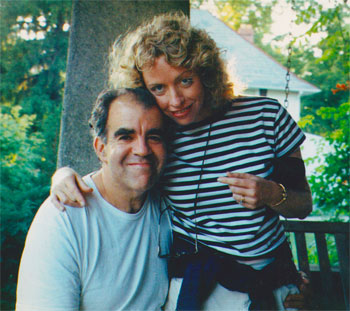 - but, for those of us who loved Don, cared about and cared for him - his loss still represents a great, great sadness. Though Don's spirit and influence have been a part of everything I've done since then and even well before his passing, the happenstance that brought me to record his "Rainsville" as a small homage to him felt so right for me - and thinking about these dates, makes it of even greater significance. As fate would have it, Don and I both ended-up living on Manhattan's Upper West Side, about 2 blocks from each other - and what a great luxury that was. We came to spend a lot of time together on a familiar bench in Riverside Park, just talking about life, people, philosophy, music, books - many things. I treasure all of those conversations. - but, for those of us who loved Don, cared about and cared for him - his loss still represents a great, great sadness. Though Don's spirit and influence have been a part of everything I've done since then and even well before his passing, the happenstance that brought me to record his "Rainsville" as a small homage to him felt so right for me - and thinking about these dates, makes it of even greater significance. As fate would have it, Don and I both ended-up living on Manhattan's Upper West Side, about 2 blocks from each other - and what a great luxury that was. We came to spend a lot of time together on a familiar bench in Riverside Park, just talking about life, people, philosophy, music, books - many things. I treasure all of those conversations.Putting this piece of music together in tribute to both Don and Michael Brecker was a real emotional journey, one that was filled with love, respect, admiration and yes, great sadness too. Don lived quite a wonderful life when all is assessed and accounted for. Everyone who knew him and loved him was so happy when he finally met, and eventually married, Jeanne O'Connor. With Jeanne in his life, Don finally arrived at a kind of inner peace and tranquility that was wonderful for all of his friends to witness. We were so happy for him and for them as a couple. I enjoyed seeing them together very much. Though Jeanne has a wonderful family of her own right now, she is and will always be a warmly loved part of our family too. She has done a spectacular job at trying to keep Don's memory and music alive, and this is something that we all appreciate very much. Recently, our WBGO-FM Jazz radio station suddenly went on a mini-campaign of playing many tunes from "MEDIANOCHE" on the air. This was great to see and hear as we all know that, each time great music is played over the airwaves, it is reaching someone - and that moment can change lives, fill a life with the inspiration to do something special, just as Don Grolnick did his entire life. We miss Don - always! Love, Steve Addendum: As my mind was wandering this morning, Thursday, June 17th, 2021, I was remembering Don Grolnick's incredible performance and eventual live album "THE LONDON CONCERT" from 1995, which featured: Michael Brecker (Tenor Sax); 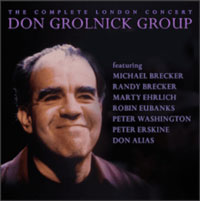 Randy Brecker (Trumpet & Flügelhorn); Marty Ehrlich (Alto Sax & Bass Clarinet); Robin Eubanks (Trombone); Peter Washington (Ac. Bass); Peter Erskine (Drums); and Don Alias (Percussion). All culled from the Peter Erskine Archives, and graciously released as a limited edition CD of Set 1 with the "COMPLETE LONDON CONCERT" only available as a digital download from Pete's Fuzzy Music label, featured at his website. Randy Brecker (Trumpet & Flügelhorn); Marty Ehrlich (Alto Sax & Bass Clarinet); Robin Eubanks (Trombone); Peter Washington (Ac. Bass); Peter Erskine (Drums); and Don Alias (Percussion). All culled from the Peter Erskine Archives, and graciously released as a limited edition CD of Set 1 with the "COMPLETE LONDON CONCERT" only available as a digital download from Pete's Fuzzy Music label, featured at his website.Remembering this wonderful recording, I returned to it today, and had to listen to the performance of "Rainsville" which featured incredible solos from Mike, Don and Randy, all graced by Don's newly added horn arrangement, now for 4 horns. As I listened, I just could not believe the majesty of this performance, which clocks in at 15:33 and only appears as part of Set 2 within the digital download. I can only urge anyone and everyone who is a Don Grolnick fan or a devotee of any of these great musicians to PLEASE click on the links supplied here, and go to Peter's website and purchase this music. It is a must have! I found this performance to be so inspiring and moving that I just sat there transfixed by this music and yet again, the losses of both Don and Mike, not to mention Don Alias. Please make the effort to listen, it will be worth every second of it.
[Photos: Don Grolnick Portrait
Don and Michael Brecker from a Steps Promo Photo Steve Khan, Don and Mike Brecker on the Bullet Train in Japan, August, 1974 Photo by: Randy Brecker Photo: Don and Jeanne O'Connor happy together in the country!] |